As the coronavirus pandemic prompts unprecedented job losses across the country, one of the first problems for many households will be how to pay next month’s rent or mortgage.
The poorest 20% of U.S. households—including many workers in low-wage industries such as retail and food service—were spending more than half their income on housing costs even during the economic boom. These families have little or no savings that can help them weather the sudden loss of income stemming from the pandemic.
To protect renters from losing their homes, a growing number of cities and states have put a temporary halt on evictions, meaning that landlords cannot evict tenants who fall behind on their rent. While this may buy renters more time, a moratorium on evictions could cause ripple effects that further hurt local economies. But there is a more effective way to help renters by giving them cash that replaces lost income, while also supporting small businesses and local governments.
Rent has important multiplier effects in the local economy
Rent checks don’t just line the pockets of fat cat landlords—they also contribute to essential government services and other workers’ wages. If many households are simultaneously unable to pay rent, the economic impacts will be felt throughout the local economy.
Table 1. Where does a rent check go? |
|
| Expense type | Recipient(s) |
| Property taxes | City/county government |
| Mortgage | Bank or non-bank financial institution |
| Insurance | Insurance company |
| Utilities | Water & sewer providers; garbage collection; gas & electric |
| Maintenance | Maintenance & housekeeping staff, materials |
| Management fees | Property manager |
| Capital reserves | Reserve fund for major maintenance/upgrades |
| Landlord/investor profits | Building owner/equity investors |
Source: Brueggeman and Fisher
The first entity that gets paid by a monthly rent check isn’t the landlord—it’s the local government. Property taxes have a higher priority even than mortgages; if a landlord falls behind on both property taxes and mortgage payments, the local government’s claim supersedes the lender’s.
Cities and counties rely on property taxes from all their constituents—individual homeowners as well as owners of apartments, offices, and other nonresidential properties—to cover the cost of providing public services. Although local governments could defer property tax payments during the current crisis, the pandemic is already stressing local government budgets. Cities are front-line providers of health care and emergency services, and also need money right now to feed children whose public schools are shut down and care for older adults and vulnerable populations.
And just as individual homeowners worry about paying their mortgage if their income falls, if rent checks dry up then landlords will have trouble making their monthly payments. Mom-and-pop landlords who own small apartment buildings are especially vulnerable: Mortgage payments, property taxes, and insurance account for well over half of property income.
In response to the current crisis, the Federal Housing Finance Agency has directed Fannie Mae and Freddie Mac to allow affected borrowers to defer mortgage payments for up to one year. But the federal government has less influence over lenders that provide mortgages for market-rate apartment buildings, which constitute the vast majority of U.S. rental housing.
Landlords are also responsible for paying building-wide utilities, including water and sewer fees, garbage and recycling collection, or gas and electricity for common areas. These are essential services that must remain functional even during the pandemic.
Additionally, many of the expenses incurred by landlords are actually the wages of other workers. Keeping an apartment building functioning, safe, and clean requires the efforts of maintenance and housekeeping staff. Larger buildings typically employ on-site workers, but even small properties have ongoing needs which they may outsource to local contractors, like plumbers or electricians. As rent payments dwindle, small landlords will defer some maintenance needs—which means poorer quality housing for all tenants in the building and loss of employment for maintenance workers.
For most landlords, partial rent is better than no rent
During a widespread economic crisis, landlords have strong financial incentives to keep existing tenants in place instead of pushing them out. Prospective tenants can’t easily view apartments or submit applications while enforcing social distancing. Vacant units bring in no rental income. Preparing apartments for new tenants—cleaning, painting, and marketing them—costs money.
Some unscrupulous landlords do use eviction filings to extract extra fees from tenants or increase legal leverage over them. But responsible landlords would rather negotiate reduced rent levels or accept partial payments rather than incur the costs and uncertainty of evicting previously reliable tenants.
Making partial rent payments instead of deferring evictions is also better for tenants, who may otherwise rack up even larger obligations that have to be repaid in the future.
Continuing to make partial rent payments is also better for tenants, who may otherwise rack up large obligations that have to be repaid in the future.
Keeping renters, landlords, and local economies going requires three prongs of federal assistance
If renter households are not able to pay their landlords, and landlords are unable to pay their property taxes, mortgages, workers, and contractors, this spiral will worsen already-declining local economic conditions.
City and state governments understandably want to protect households who face sudden income losses through no fault of their own. And keeping people in their homes is essential to public health goals right now. Protecting vulnerable households while also mitigating local economic harm requires an immediate infusion of financial assistance from the federal government. Three types of spending are necessary:
- Send checks to people. Providing immediate cash assistance to both renter and homeowner households would allow them to continue making payments on necessities, including housing, groceries, and health care.
- Offer low-cost loans to support small and medium-sized businesses, including property management and maintenance firms. Allowing businesses to tap into more resources now would enable them to continue paying their workers and purchasing goods and services from other businesses.
- Provide flexible grants to state and local governments. Cities, counties, and states are on the front line of dealing with the current crisis, from public health to food security to transportation. Their primary revenue sources (property taxes, sales taxes, and hospitality taxes) are already declining as businesses shutter and households are directed to shelter in place.
Halting evictions may sound good on paper, but it risks exacerbating the pandemic’s local economic impacts in unforeseen ways. Instead, the federal government must step into its role as the lender of last resort through loans, grants, and direct cash payments. People, businesses, and communities across the U.S. need help now.
The Brookings Institution is committed to quality, independence, and impact.
We are supported by a diverse array of funders. In line with our values and policies, each Brookings publication represents the sole views of its author(s).
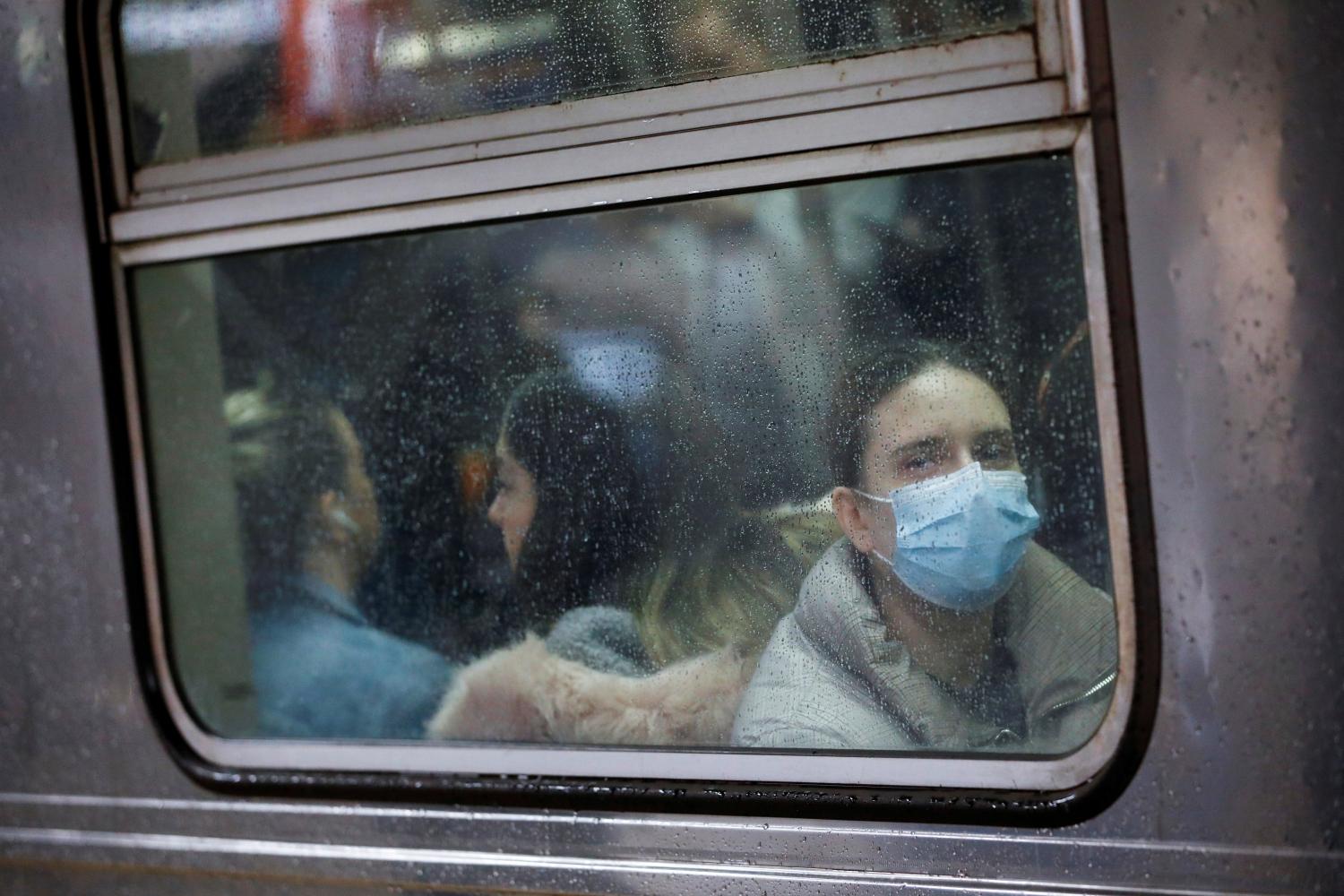
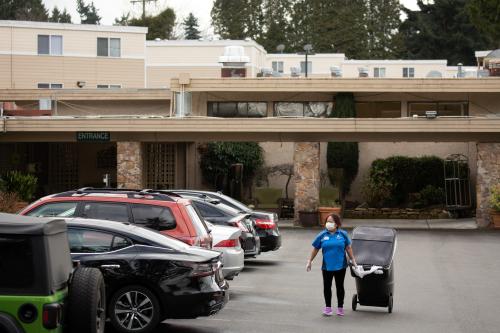
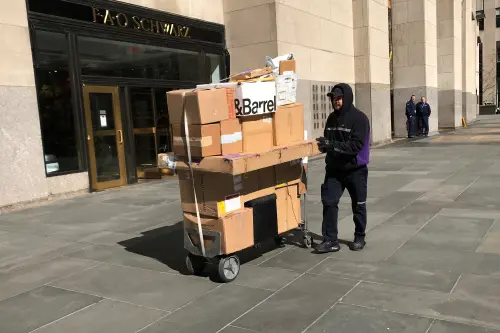
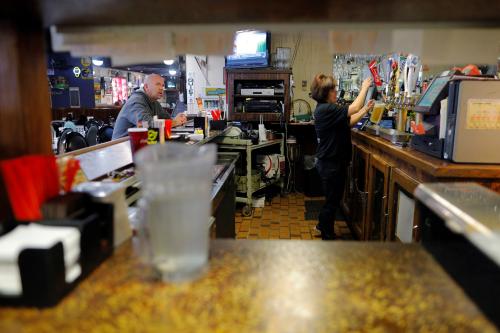

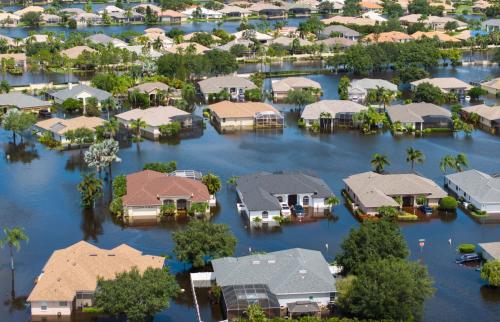
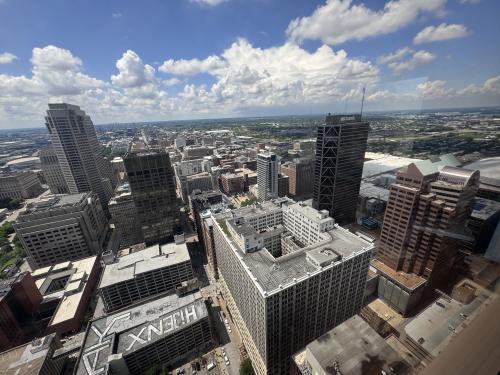
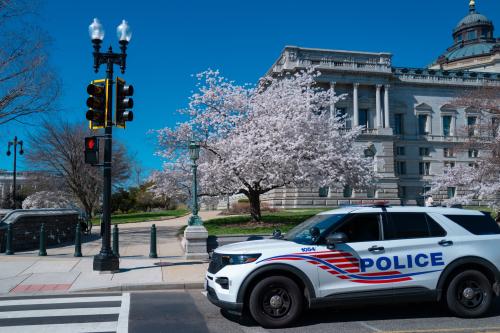
Commentary
Halting evictions during the coronavirus crisis isn’t as good as it sounds
March 25, 2020